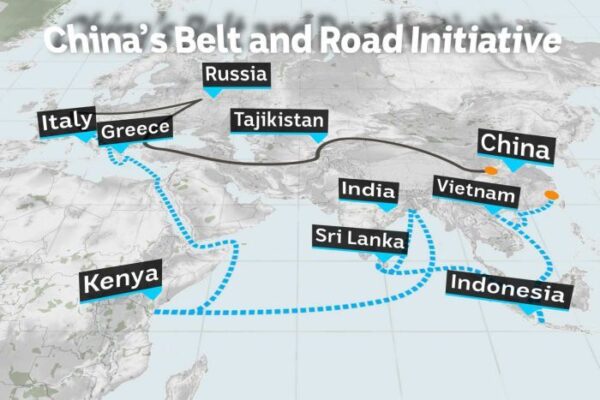Last week China hosted its second Belt and Road Forum (the first was in 2017) from April 25-27, to further promote and reaffirm support for President Xi Jinping’s trillion-dollar global trade initiative. Nearly 40 foreign leaders and 5,000 representatives from 150 countries were on this year’s guest list. So far, 126 countries and 29 international organisations have signed cooperation agreements with China. Most of those 126 countries are developing or least-developed countries like Cambodia, Laos and Libya, while other are Australia’s allies such as New Zealand, which has also joined on for various reasons.
But even as the BRI receives increasing backing – including from our neighbours Papua New Guinea, Vanuatu and Tonga – experts say it is unlikely that Australia as a nation would ever join the BRI.
The BRI has come to be known as Beijing’s attempt to revive an ancient network of land and ocean – and now also digital – silk trade routes between Asia and Europe, as well as building new links in Africa, South America and the Middle East. Billions of dollars have already been spent on new infrastructure projects for roads, railways, ports and maritime corridors across the globe.
However, Australia maintains it doesn’t want to take part, despite Victorian Premier Daniel Andrews attending the forum after breaking ranks with the Federal Government and signing a Memorandum of Understanding (MOU) last October. The Victorian Government’s agreement refers to “the Silk Road spirit”, while New Zealand’s speaks of “dialogue and fusion among civilisations”.
Australia has resisted joining the BRI as national security figures have expressed serious ‘strategic’ consequences if Australia formally signed up. The USA is also suspicious about the Belt and Road, saying it’s a vehicle for China to exert its influence in the region.
While holding reservations about China’s vast plan, Western powers are also pushing ahead with their own strategies to rival the BRI. Last July, Australia, Japan and the United States confirmed they will set up a regional infrastructure scheme, which would offer countries in the Indo-Pacific region an alternative to Beijing. The European Commission last September also released a report titled Connecting Europe and Asia: Building Blocks for an EU Strategy.

